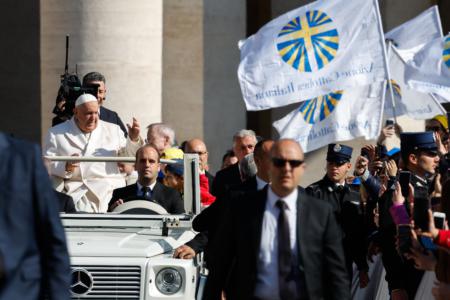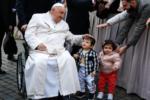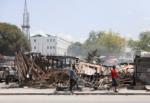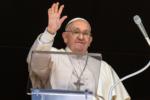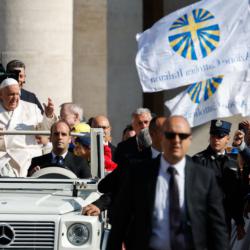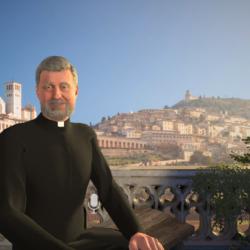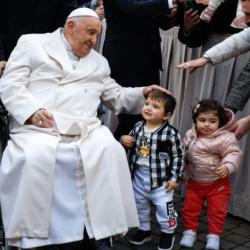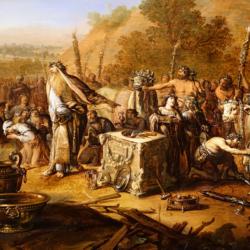Pope advances causes of Canadian nun, Indian 'apostle of Sri Lanka'
VATICAN CITY (CNS) -- Pope Francis advanced the sainthood causes of four men and women, including Marie-Elisabeth Turgeon, the Canadian founder of the Sisters of Our Lady of the Holy Rosary.
The pope also accelerated the sainthood process of Blessed Joseph Vaz, an Indian missionary credited with reviving almost single-handedly the Catholic Church in Sri Lanka during severe persecution by Dutch colonial authorities in the 17th century.
During a meeting Sept. 17 with Cardinal Angelo Amato, prefect of the Congregation for Saints' Causes, the pope signed a decree recognizing a miracle attributed to the intercession of Blessed Sister Maria Cristina Brando.
The 19th-century Italian religious left her wealthy family to devote her life to eucharistic spirituality and to found the Congregation of the Sisters, Expiatory Victims of Jesus in the Blessed Sacrament.
Pope Francis also recognized a miracle attributed to the intercession of Turgeon, who was born in Beaumont, Quebec, in 1840, and died in Rimouski, Quebec, in 1881.
In another decree, the pope recognized a miracle attributed to the intercession of Italian Archbishop Pio Alberto del Corona, a Dominican and founder of the Congregation of the Dominican Sisters of the Holy Spirit. He was born in 1837 and died in Florence in 1912.
The miracles attributed to the intercessions of Turgeon and Archbishop del Corona clear the way for their beatifications.
Pope Francis moved the sainthood process forward without formally recognizing a miracle needed for the canonization of Blessed Vaz, a 17th-century Oratorian missionary from Goa, India, known as the "apostle of Sri Lanka."
The dates for the canonizations of Blesseds Vaz and Brando were to be announced during a yet-unscheduled ordinary consistory.
St. John Paul II beatified Blessed Vaz during his first trip to Sri Lanka in January 1995. Pope Francis was scheduled to visit Sri Lanka, together with India, 20 years later, this January.
Blessed Vaz, born in India in 1651, entered Sri Lanka in 1687 disguised as a poor laborer in order to minister to the underground church.
At the time, the Dutch had taken control of Sri Lanka's coastal areas from the Portuguese. Fearing the island's Catholics might remain loyal to the Portuguese, the Dutch made Catholicism illegal, banished Catholic priests and confiscated Catholic churches and schools.
Aided by lay leaders, Blessed Vaz often went barefoot, with a rosary round his neck, ministering to and organizing Catholics throughout the island where the church had had no priests for over three decades. He was the lone Catholic pastor of Sri Lanka until other priests joined him in 1697 at his request.
Surviving two years in prison for being a suspected Portuguese spy, Blessed Vaz was then given permission to work as a missionary in the Sinhalese kingdom of Kandy until his death in 1711.
